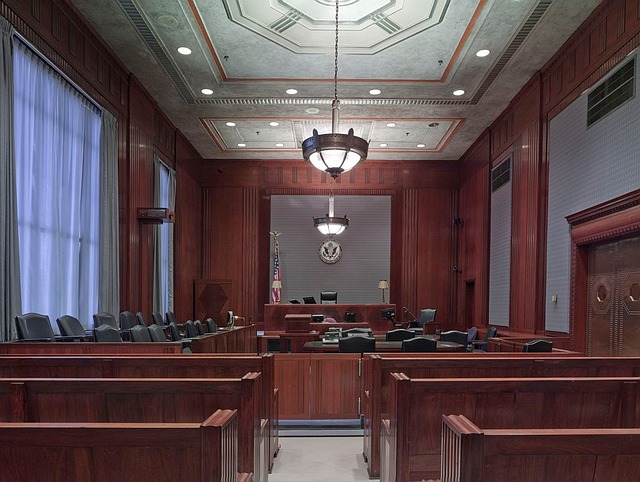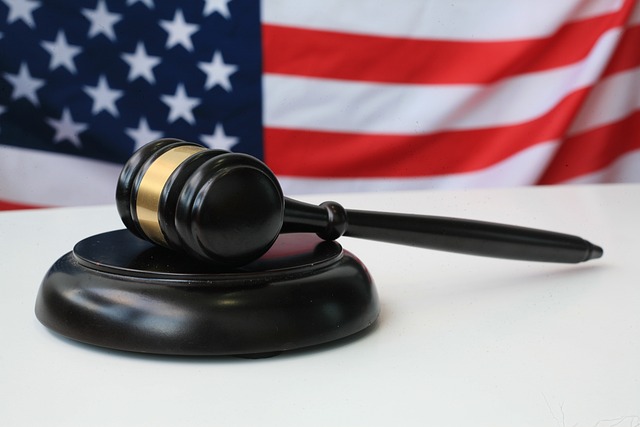navigating the complexities of estate distribution can be a daunting task. This article delves into the intricacies of the courtroom process in estate distribution, highlighting the critical role of a probate attorney in ensuring compliance with intricate estate laws. We explore key factors that influence court decisions, offering valuable strategies for achieving efficient and equitable estate settlement outcomes. Understanding these legal steps and professional guidelines is essential for anyone involved in the distribution of an estate, ensuring a fair and orderly process.
- Understanding the Courtroom Process in Estate Distribution
- The Role of a Probate Attorney in Navigating Estate Laws
- Key Factors Influencing Court Decisions on Estate Distribution
- Strategies for Efficient and Fair Estate Settlement Outcomes
Understanding the Courtroom Process in Estate Distribution

When an estate enters the courtroom process for distribution, it is often due to disputes among beneficiaries or challenges to the validity of a will. The court serves as the impartial arbiter, interpreting the deceased’s will and ensuring that state laws are followed in the distribution of assets. This legal setting involves various procedures, including the filing of petitions, the appointment of an executor or administrator, and the oversight of the probate process. The court’s role is to protect the interests of all parties involved, particularly the rightful heirs, by carefully considering all claims and evidence presented. Navigating this legal landscape without professional guidance can be complex and daunting for individuals unfamiliar with estate law; thus, seeking the expertise of an attorney who specializes in probate litigation is advisable to safeguard one’s rights and interests throughout the courtroom process in estate distribution.
The judicial system requires detailed documentation and adherence to strict legal protocols. An executor or administrator, often with the assistance of legal counsel, must inventory and appraise the decedent’s assets, pay outstanding debts and taxes, and ultimately distribute the remaining estate according to the will or state intestacy laws. The court oversees this process, ensuring transparency, fairness, and compliance with statutory requirements. This oversight is crucial in resolving any conflicts that may arise, such as challenges to the executor’s actions or questions regarding the capacity in which the will was executed. Professional guidance during this phase can greatly facilitate the smooth administration of the estate and help achieve a resolution that aligns with both the decedent’s intentions and legal mandates.
The Role of a Probate Attorney in Navigating Estate Laws

When an individual passes away, their estate enters a complex legal process to ensure their wishes are honored and assets are distributed appropriately. A probate attorney plays a pivotal role in this process, serving as a guide through the intricate web of estate laws. These legal experts understand the nuances of courtroom procedures and can navigate the judicial system with precision. They interpret wills, assess tax implications, and advise executors on their duties and responsibilities, ensuring compliance with state and federal laws. Their expertise is invaluable in resolving any disputes among beneficiaries, thereby safeguarding the integrity of the estate distribution.
The role of a probate attorney extends beyond mere legal formalities; they act as a mediator, an advisor, and often a steadying presence during what can be a tumultuous time for families. Their familiarity with courtroom protocols means they can anticipate potential challenges, prepare the necessary documentation, and represent the estate’s interests in probate court if necessary. This proactive approach not only expedites the process but also minimizes the emotional strain on grieving loved ones, allowing them to mourn and remember their deceased family member with dignity.
Key Factors Influencing Court Decisions on Estate Distribution

When a decedent’s will does not clearly specify how their estate should be distributed, or in cases where there is no will, courts must navigate complex family dynamics and legal precedents to determine the fairest distribution. Judges consider a variety of factors, including the size of the estate, the number and nature of the heirs, the relationships between the decedent and potential beneficiaries, and any previous statements or writings from the deceased that may indicate their intentions. The legal framework guiding these decisions is rooted in state statutes, which often prioritize the survival needs of surviving spouses and minor children. Additionally, the courtroom setting requires a delicate balance between upholding the law and fulfilling the perceived wishes of the decedent, ensuring that the final distribution aligns with both legal mandates and moral considerations.
In the courtroom, the probate process unfolds with meticulous attention to detail, as legal representatives for the estate present evidence and argue their clients’ interests. The judge’s decision will ultimately rest on a synthesis of the law, the evidence presented, and a judicious interpretation of what the decedent might have wanted, often informed by the totality of the decedent’s relationships and financial arrangements during their lifetime. This process underscores the importance of clear estate planning to avoid ambiguity in the distribution of one’s assets, thereby reducing the burden on the court system and providing clarity for the beneficiaries.
Strategies for Efficient and Fair Estate Settlement Outcomes

Navigating the complexities of estate distribution often necessitates professional guidance to achieve efficient and fair outcomes. Engaging legal experts, such as attorneys with specialized knowledge in probate law, can provide crucial insights into state-specific laws and courtroom procedures that govern estate settlement. These professionals can assist in drafting wills that clearly outline the decedent’s final wishes, minimizing potential conflicts among beneficiaries. Additionally, they can help implement strategies to expedite the probate process, such as submitting all necessary documentation promptly or identifying and transferring assets effectively outside of probate. By leveraging these legal resources, families can avoid costly courtroom battles and ensure that the estate is settled in a manner that honors the deceased’s intentions, while also safeguarding the interests of all parties involved.
In the event that disputes arise, professional mediators or arbitrators can facilitate negotiations to reach an amicable resolution without the need for a formal courtroom proceeding. These neutral parties are adept at guiding discussions and helping all involved understand legal rights and obligations, ensuring that decisions are made based on factual considerations rather than emotional ones. This process not only saves time and resources but also preserves family relationships that might otherwise be strained by the adversarial nature of litigation. Furthermore, courtroom intervention is often a last resort when other methods fail; thus, employing professional guidance from the outset can significantly increase the likelihood of a smooth and equitable estate settlement.
When a testator’s final wishes hinge on the intricacies of estate distribution, the courtroom emerges as a pivotal stage where legal expertise and judicious decision-making converge. The guidance of a seasoned probate attorney becomes indispensable, navigating the complex web of laws to ensure the process is both efficient and equitable. This article has outlined the critical steps and strategies necessary for fair estate settlement outcomes, emphasizing the key factors that influence court decisions. In conclusion, the judicial system offers a structured framework for resolving such matters, with professional legal counsel playing a crucial role in upholding the intent of the deceased while safeguarding the interests of all parties involved. Understanding the courtroom process and leveraging the expertise of a probate attorney is essential for anyone facing the distribution of an estate, ensuring that the legacy left behind is honored as intended.
